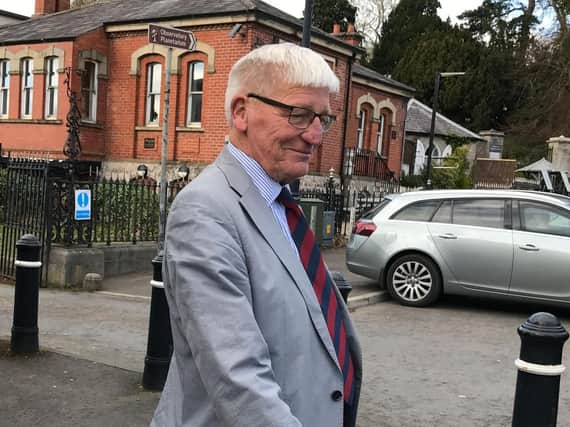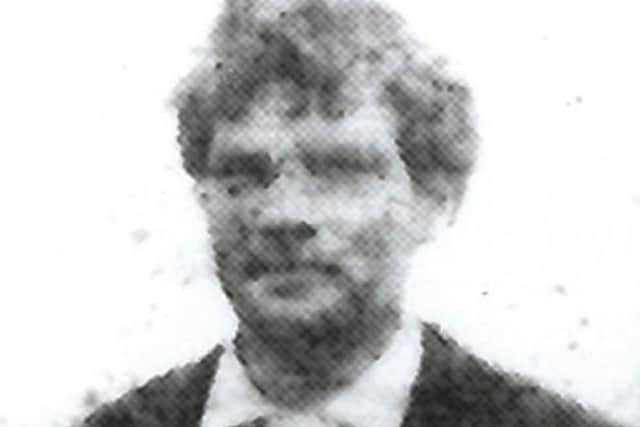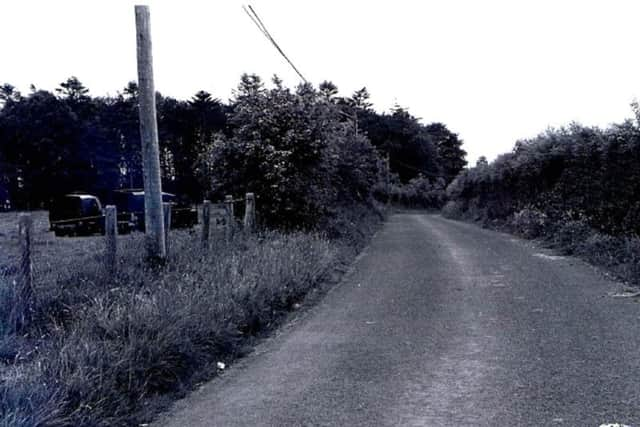British soldier fired three times at unarmed man as he ran away, court told


Dennis Hutchings, now 75, has appeared in court in Northern Ireland accused of the attempted murder of John-Pat Cunningham, 27.
Mr Cunningham, who had learning difficulties, was shot dead by an Army patrol in June 1974, close to Benburb, a village on the border between counties Armagh and Tyrone.
Advertisement
Hide AdAdvertisement
Hide AdHutchings, of New Road in Cawsand, Torpoint, Cornwall, is also facing a charge of attempting to cause grievous bodily harm to Mr Cunningham.


A prosecution lawyer told a preliminary inquiry at Armagh Magistrates' Court that Hutchings chased Mr Cunningham across a field and fired his weapon three times.
He said it was possible that it was Hutchings who shot Mr Cunningham, but added it was "equally possible" the fatal shots were fired by a second man, referred to as Soldier B.
The court heard that Mr Cunningham was shot at least twice, with one bullet hitting him in the back as he fled.
Advertisement
Hide AdAdvertisement
Hide Ad"This was an innocent, unarmed man shot and killed by soldiers. He was shot through his back at a range of 90 metres," the prosecutor said.


"Clearly the defendant followed (Mr Cunningham) into the field. John-Pat Cunningham was running away.
"John-Pat Cunningham did not pose any threat that required him to be shot and killed. There was no legitimate reason for the defendant to fire his weapon.
"The evidence presents the picture of an unexplained, repeated firing at an innocent, vulnerable man running away from the soldiers."
Advertisement
Hide AdAdvertisement
Hide AdA defence lawyer said Hutchings acted lawfully at all times and Mr Cunningham had posed a threat. He said the Army patrol thought Mr Cunningham was in possession of a concealed weapon.


The lawyer said: "Mr Hutchings was on lawful duty that day charged with keeping the peace.
"We know that Mr Cunningham was acting suspiciously. We know that Mr Cunningham failed to obey a lawful order to stop.
"All we know is that the patrol stopped a man who was acting suspiciously. They thought he had a concealed weapon. He failed to follow orders to halt. He was shot."
Advertisement
Hide AdAdvertisement
Hide AdA retired member of the Royal Military Police told the court he seized Hutchings' self-loading rifle after the shooting because the defendant told him it had been used.


Alan Mews told the court he had received a radio call from the operational unit and asked to attend the scene. He said he entered a field with a local priest.
"I walked 200 yards then I saw the body of John-Pat Cunningham. I had a conversation with the priest then returned to the vehicle.
"I spoke to the soldiers involved and took possession of a self-loading rifle along with a magazine from Colour Sergeant Hutchings."
Advertisement
Hide AdAdvertisement
Hide AdThe judge is to decide on Tuesday if Hutchings will be returned for Crown Court trial.
Earlier the court was told that Hutchings is suffering ill health.
Requesting breaks throughout proceedings, a defence lawyer said: "He is not a well man. He has kidney failure. In a matter of months he will be on dialysis. He will be in hospital for five hours every day."
Hutchings, who appeared to be in good spirits as he entered court on Monday, was charged after a fresh investigation in 2013, launched after a request from the Director of Public Prosecutions in Northern Ireland.